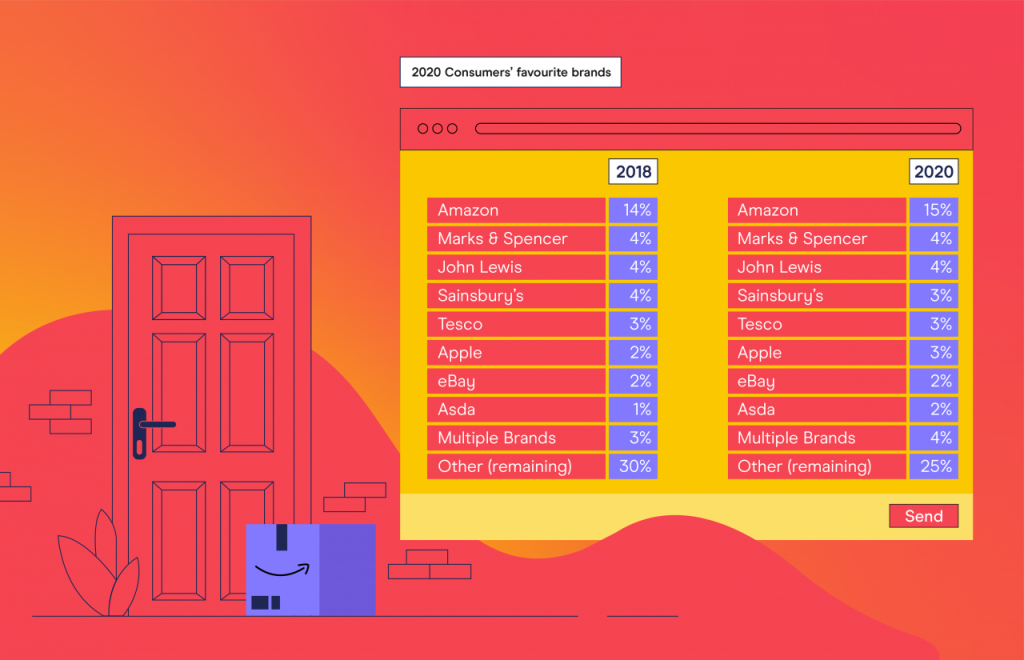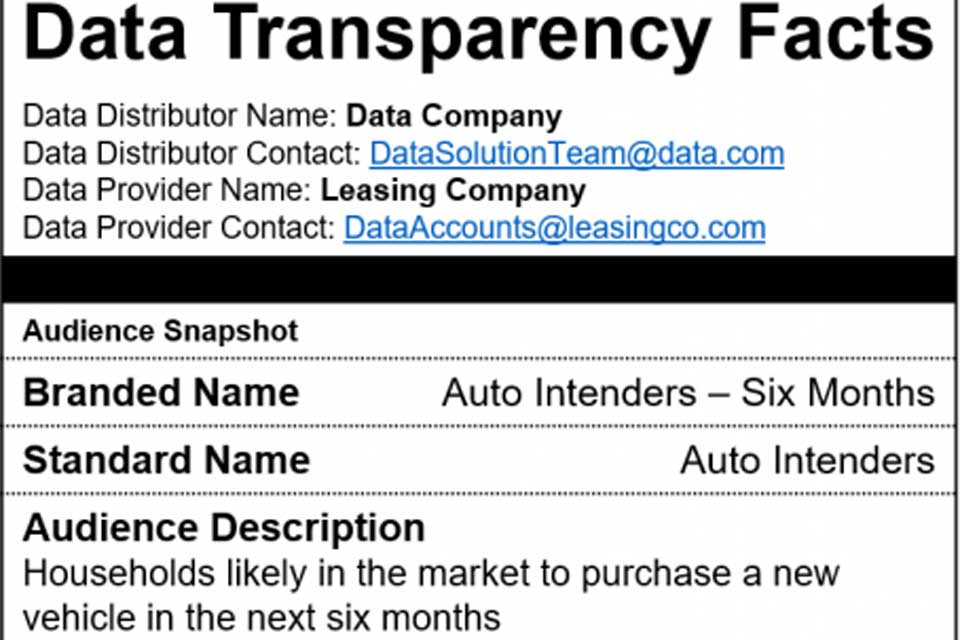Leading marketing and media trade groups have unveiled the beta version of a new industry standard Data Transparency Label.
The new label was developed by the ANA’s Data Marketing & Analytics (DMA) division, the IAB Tech Lab, the Coalition for Innovative Media Measurement (CIMM) and the Advertising Research Foundation (ARF).
The Data Transparency Label was introduced during a presentation at Advertising Week 2018 with support from ANA, The ANA Council for Data Integrity, IAB Tech Lab’s Data Transparency Standards Working Group, IAB’s Data Center of Excellence, CIMM and ARF.
The label is the culmination of more than a year’s work in developing a “nutritional label” equivalent for audience segment data sets that discloses source, collection, segmentation criteria, recency and cleansing specifics. The group is also establishing a centralised database to house the label information, as well as an associated compliance program that will govern disclosure, certification and validation.
The trade associations and their members were motivated to develop this standard Data Transparency Label to help reputable marketers, fundraisers and agencies better leverage data in a responsible manner, to enable the delivery of increasingly-relevant messages to consumers and donors and to improve the overall consumer experience with content and advertising.
The thinking is simple – data buyers are making billions of dollars in media spend decisions based on audience segmentation data, but few tools enable marketers to learn “what’s inside” the data they buy.
The Data Transparency Label, which was developed to serve as an industry standard, is comprised of four descriptive sections designed to better inform buyers of each data set’s ingredients:
- Data Solution Provider and Distributor Information
Who provided the data segment, inclusive of contact information, for both data solution distributor and, where applicable, original data provider;
- Audience Snapshot
What audience segment the label describes, including both the provider’s branded audience segment name as well as the most relevant segment name from a new standardized taxonomy, a top-line audience description and applicable geographic coverage;
- Audience Construction
How the segment was constructed, inclusive of details such as audience count, any applicable modeling or cross-device ID expansion that may have been applied, audience refresh rates, and event lookback window for inclusion;
- Source Information
Where the original data components were sourced. Required for each significant data source, this component includes details on data provenance, data collection techniques, refresh frequency, and event lookback window.
With the announcement, data, technology, media and marketing companies are now being invited to participate in a six-month public comment period, during which time participants can test-drive the label with up to fifty common syndicated audience segments provided by globally-recognised data solution providers such as Oracle Data Cloud, LiveRamp, Neustar, Lotame, Acxiom, Experian, TruSignal, Fluent and FullContact.
During the six-month public comment period, interested parties can explore how a Data Transparency Label can be used and accessed at DataLabel.org, an online tool that demonstrates how viewers could search, inspect, and compare sample labels housed either within a participating DMP/DSP platform, or directly on DataLabel.org as a distinct access point.
Along with ANA, IAB, IAB Tech Lab, CIMM, and ARF, this initiative is being driven by 15 association member companies, including a Leadership Committee that includes LiveRamp, MediaMath, Neustar and Oracle Data Cloud, and a working group that includes 1-800-FLOWERS, Acxiom, Disabled American Veterans (DAV), Experian, FCB/SIX, FullContact, Fluent, Moxie, Publisher’s Clearing House, TruSignal, MetLife and the United States Postal Service.
“Client-side marketers and fundraisers have been demanding better standards around data quality and integrity. We felt it was important to corral several industry wide initiatives into one industry standard to enhance efficiency and to improve the toolset that client-side marketers and fundraisers use to make important decisions about data segments. In collaboration with CIMM, ARF, IAB and IAB Tech Lab we are delighted to bring this important tool in data transparency to market,” said Tom Benton, ANA Group EVP, DMA Division. “The industry now has a well-considered, easy to use and easy to understand label that clearly defines critical data source information. We hope that the transparency this label brings will be a driving force that improves data integrity, data quality, and the decisions that marketers and fundraisers make every day.”
“The Data Transparency Label enables meaningful understanding of segment attributes and sourcing practices across data providers,” said Dennis Buchheim, Senior Vice President and General Manager, IAB Tech Lab. “The collaboration with ANA, CIMM, ARF, and IAB – alongside complementary Tech Lab efforts to facilitate privacy-compliant data access and activation through a common ID namespace – enables more effective and responsible use of data in marketing and helps improve consumer ad experiences. As a whole, these initiatives provide a foundation to support digital marketing’s ongoing role in funding content and services.”









